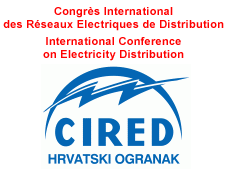Department of Energy and Power Systems was founded at the 129th Faculty Council’s Regular Session of the Technical College University of Zagreb, on Tuesday June 26, 1934. Department of Energy and Power Systems studies and innovates in the fields of generation, transmission, distribution and use of electrical energy, energy efficiency, high voltage engineering, smart grids, energy management, nuclear engineering and safety, electricity markets, and electric vehicles. Throughout the years, the Department has become the leading authority in the field of electrical power engineering in the region, maintaining long-term collaboration with the industry sector. Furthermore, it is recognized through its research activities and a large number of published scientific papers in JCR journals, as well as numerous national and international research projects. In total, the Department has 52 employees (16 Professors – 9 Full, 4 Associate and 3 Assistant) and offers substantial educational and R&D facilities, including five Research Laboratories, six department teaching halls and a department library. Through its activities, the Department has developed valuable international collaboration with many research institutions around the world. Researchers of the Department are currently involved in 3 HORIZON 2020 projects, 2 bilateral projects, 1 Erasmus+ project, 5 projects financed by the Croatian Science Foundation, as well as the principal investigators of a number of industry-funded projects.
Hrvatski IEEE PES i IAS odjeli pozivaju Vas na predavanje
Lecture Abstract
The smart transmission grid is a major topic of discussion but a comprehensive description of such a grid is still developing. It is expected that such a transmission system will have significantly more measurements, communications and control than the present grid but no consensus has been reached on what the specifications of such new functionality should be. Of course, the technical specifications depend on the new applications of monitoring and control that we would like to see for the operation of the grid. Matching the available technology of measurement, communication and control to our wish-list of applications is the way to develop this technical vision of the smart grid.
In this presentation, we will develop a specific view of what the smart transmission grid will look like and what new monitoring and control functions will be feasible with existing technologies of measurements, communications, computers and controllers. The new development will be mainly in software which will be covered.
Anjan Bose is a Regents Professor and the Distinguished Professor of Electric Power Engineering at Washington State University in Pullman, Washington, where he also served as the Dean of the College of Engineering & Architecture from 1998 to 2005. He is a leading researcher on the operation and control of the electric power grid. He has worked in the electric power industry as well as academe for over 35 years.
Dr. Bose is a Member of the US National Academy of Engineering, a Foreign Fellow of the Indian National Academy of Engineering, a founding Board Member of the Washington State Academy of Science, and a Fellow of the Institute of Electrical & Electronics Engineers (IEEE). He was the recipient of the Outstanding Power Engineering Educator Award, the Third Millenium Medal, and the Herman Halperin Electric Transmission & Distribution Award from the IEEE. He has been recognized by both Iowa State University and the Indian Institute of Technology with their distinguished alumnus awards. He has served on several editorial boards and on many technical committees and conference organizations. He was appointed by the governor to the board of directors of the Washington Technology Center, and by the US Secretary of Energy on the committee to study the 1999 and 2003 power blackouts. He has served on several committees of the US National Academies including those for Engineering Education, Cybersecurity Research, Power Grid Security, and America’s Energy Future. He has consulted for many electric power companies and related government agencies throughout the world.
Anjan Bose
Regents Professor
School of EECS, Washington State University
Pullman, Washington, USA 99164
bose@wsu.edu


 Pristupačnost
Pristupačnost
